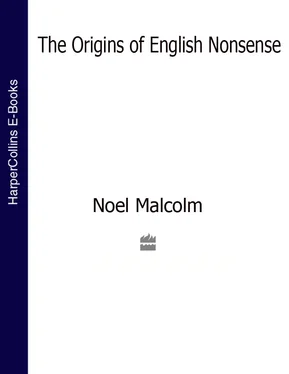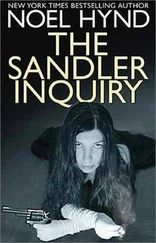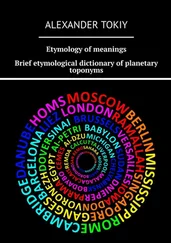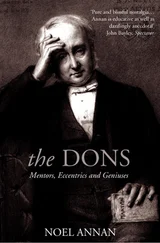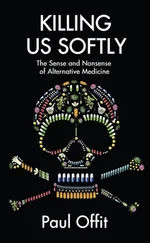1 ...7 8 9 11 12 13 ...17 At all these fires every night, which began to be made a little after five of the clock, the senior undergraduats would bring into the hall the juniors or freshmen between that time and six of the clock, and there make them sit downe on a forme in the middle of the hall, joyning to the declaiming desk: which done, every one in order was to speake some pretty apothegme, or make a jest or bull, or speake some eloquent nonsense, to make the company laugh. 7
Wood also recorded the ‘eloquent nonsense’ which he himself spoke on that occasion: ‘Most reverent Seniors, may it please your Gravities to admit into your presence a kitten of the Muses, and a meer frog of Helicon to croak the cataracts of his plumbeous cerebrosity before your sagacious ingenuities…’ 8Writing in the 1680s, Wood apologetically observed that this illustrated ‘the folly and simplicity of those times’; at some time between 1647 and the restoration of Charles II in 1660, he wrote, ‘it was disused, and now such a thing is absolutely forgotten’. 9In this last claim he was not quite accurate. A few examples of fustian can be found in publications of the late seventeenth century; the generation which had been at Oxford or Cambridge in the 1640s and 1650s still formed a significant part of the reading public, and one would not expect the genre to become ‘absolutely forgotten’ until that generation itself was no more. One late example can be found in a compilation of humorous letters edited by Charles Gildon and published in 1692. Introduced as a letter ‘From a conceited Fellow that affects to write fine Language, tho’ he makes his Letter perfect Nonsense’, and signed ‘Jehoiachim Balderdash’, it begins:
Obscenical Sir ,
I could not recognise upon any Substance since I was so Malheureus in your transcendent Conversation, which the Philosophy of the Cymerians most abtrusly demonstrated, tho’ I must confess, I for those Ecclarisments, and doubtful Disputations have no small Antiquity, and yet the extraordinary Regret that Humidity, and Preter-natural turn of your Wit superseded them, makes me desire a fresh Excrement from you to nourish my Intellectuals … 10
Reading this, one becomes aware of a more fundamental reason for the decline of the genre: whereas much latinate vocabulary was still either off-puttingly scholarly or completely new-minted in the late sixteenth century, such large quantities of it had been absorbed into the language during the next hundred years that it was becoming impossible to achieve the same effects of sheer density and outlandishness any longer.
As the ‘fustian’ speech in Jonson’s Every Man out of his Humour and Hoskyns’s performance of the previous year demonstrate, the term ‘fustian’ was well established by the late 1590s. It is, however, hard to say exactly when this name had come into use. The OED draws a comparison between the development of this term and the use – which is datably earlier – of the word ‘bombast’; other metaphors of cloth or material, such as ‘taffeta’, were also used in this period, and their meanings were eventually conflated. But the more closely one looks into the history of each term, the further apart their original meanings seem to stand. Bombast (a kind of coarse cotton-wool) was used by tailors for padding, and its natural metaphorical application was to poetry or oratory which was padded out with redundancies or puffed up to impress. This was a matter of rhetorical extravagance and excessive grandeur rather than pretentious obscurity: when George Puttenham drew up his list of stylistic defects in The Arte of English Poesie (written in the 1570s and 1580s) he kept his strictures on ‘inkhorn terms’ and over-Latinate diction quite separate from his attack on what he called ‘ Bomphiologia , or Pompious speech’, in which he observed: ‘Others there be that fall into the contrary vice [contrary, that is, to the vice of excessively mean diction] by using such bombasted wordes, as seeme altogether farced full of winde, being a great deal to high and loftie for the matter, whereof ye may finde too many in all popular rymers’. 11By the end of the 1580s there was one style above all that attracted this criticism: the extravagant poetic oratory of Marlowe. In 1589 Thomas Nashe pointed unmistakably at Marlowe’s Tamburlaine when he referred to those playwrights ‘who, mounted on the stage of arrogance, think to out-brave better pens with the swelling bumbast of a bragging blanke verse’. Swelling and bragging, rather than affecting obscurity, were the original connotations of ‘bombast’.
Fustian, on the other hand, was a ‘velure’ cloth made either from cotton or from a mixture of flax and wool, so silky in appearance that it could be used in place of velvet. A modern historian of costume observes that ‘Elizabethan statutes of apparel limiting the use of silk materials to rich nobility made fustian a fashionable substitute for middle-class persons’. 12So the natural metaphorical use of the term was for the pretentious and the bogus – things which appeared more valuable or exotic than they really were. The earliest known use of the word as a linguistic metaphor comes in a popular work which itself used the device of representing the social and moral world by means of differences in cloth and clothing: Robert Greene’s A Quip for an Upstart Courtier: or, a quaint Dispute between Velvetbreeches and Cloth-breeches (1592). A description of a fashionable barber includes the following: ‘Then comes he out with his fustian Eloquence, and … saith, Sir, Will you have your Worships Hair cut after the Italian Manner, short and round, and then frounct with the curling Yrons, to make it looke like to a Halfmoone in a Mist?’ 13Two years later Thomas Nashe used the term in his The Terrors of the Night , referring to mountebank astrologers ‘with their vaunting and prating, and speaking fustian in steede of Greeke’. 14This usage by Nashe (unlike that by Greene) does show that the term had already acquired some connotations of pseudo-scholarliness; but in the early 1590s it was obviously not quite tied to the stylistic phenomenon of addiction to inkhorn terms. When Nashe himself had mounted one of the most famous attacks on that phenomenon in his verbal assault on Gabriel Harvey, Strange Newes, of the Intercepting certain Letters (1592), he had made no use of the term ‘fustian’, preferring ‘inkehornisme’ instead. 15
Another influential passage using the term ‘fustian’ also dates from the early 1590s: it comes in one of the comic interludes in Marlowe’s Dr Faustus , which may have been written for a performance in 1594. One modern scholar has suggested that they were written by Nashe himself; Nashe’s modern biographer argues, more plausibly, that they were written by someone who was influenced by Nashe’s writings. 16The passage is an exchange between Faustus’ assistant, Wagner, and a ‘clown’:
Wagner Vilaine, call me Maister Wagner , and let thy left eye be diametarily fixt upon my right heele, with quasi vestigias nostras insistere .
Clown God forgive me, he speakes Dutch fustian.
There are several possible levels of allusion here. Wagner was himself ‘Dutch’ (high Dutch, i.e. German). German fustian was the coarsest and cheapest of all the commonly imported varieties: so substituting ‘Dutch fustian’ for velvet would be the height of false pretension. 17It is also conceivable that some word-play on ‘Faustian’ was intended.
The use of cloth-metaphors for speech features prominently in another play, written probably in 1593–4: Shakespeare’s Love’s Labours Lost. Here it the poetical wooer Berowne finally abjures
Taffeta phrases, silken terms precise,
Читать дальше
